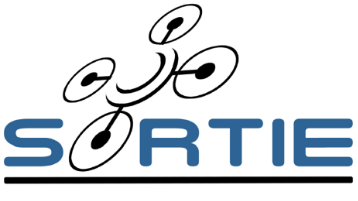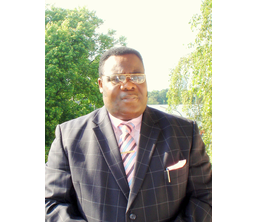SORTIE

The aim of the research project "Sensor Systems for Localization of Trapped Victims in Collapsed Infrastructure (SORTIE)" is the development and implementation of a modular platform with different detection technologies for the search of trapped victims using an unmanned aerial vehicle.
Buildings often collapse suddenly and without any warning, for example in case of gas explosions or earthquakes. It is not rare that people are trapped under the debris of a building during these events. From the moment of collapse, time is rapidly running out to rescue victims alive. Human survival is limited by the lack of drinking water supply to about three days. The time pressure is in opposition to a difficult and risky search. Search and rescue teams can usually move only slowly and carefully on the precarious debris. Especially in the event of an earthquake, it is important to be able to search extensive areas efficiently and safely in the future.
At a Glance
| Category | Description |
|---|---|
| Research project | Sensor Systems for Localization of Trapped Victims in Collapsed Infrastructure (SORTIE) |
| Management | Prof. Dr.-Ing. Ompe Aimé Mudimu |
| Persons involved |
Lennart Landsberg Konrad Barth Alena Knispel Pauline Tobergte |
| Partners |
University of Freiburg Fraunhofer Institute for Physical Measurment Techniques IPM, Freiburg Friedrich-Alexander University Erlangen-Nuremberg TH Köln – University of Applied Sciences, Cologne Universität der Bundeswehr München German Federal Agency for Technical Relief, Bonn |
| Sponsors | BMBF - Federal Ministry of Education and Research with 2.6 million euros (IRG share: 393,000 euros) More |
| Duration | 01/2020 - 12/2022 |
| Associated Partners |
Meder CommTech GmbH @fire Internationaler Katastrophenschutz Deutschland e.V. Institute for emergency medicine of the Cologne Fire Department Saab Medav Technologies GmbH Schütz GmbH Messtechnik I.S.A.R. (International Search and Rescue) Germany e.V. |
Under the coordination of the Albert-Ludwig-University of Freiburg, a German-Indian project consortium is developing a modular system for an "unmanned aerial vehicle" (UAV) that enables the use of variable airborne search and reconnaissance techniques. For example, an installed module on the drone can detect movements of breathing under the debris, another module can perform cell phone tracking or detects explosive atmospheres. The aim is to enable rescue teams to execute a safe and specific search for survivors without entering the debris directly.
To ensure end-user proximity, the new technology will be developed built on a realistic and representative scenario. Based on this, the IRG determines the end-user needs and the requirements for the system. For this purpose, collapse events which happened in the past are first analyzed and presented to the end-users in a scenario. Based on these developed scenarios, the end-users present their needs for the system. As a result, a specification sheet is established, which will determine the technical development of the system. Additionally, the IRG drafts recommended actions and integration proposals for the system to enable optimum integration of the new technology into existing operational procedures and structures. During the project, the developments and findings will be continuously tested and verified by field trials. The IRG conducts a planning exercise and a final demonstration to evaluate the system and its use in practice.
 Sponsored by the Federal Ministry of Education and Research
(Image: BMBF)
Sponsored by the Federal Ministry of Education and Research
(Image: BMBF)

